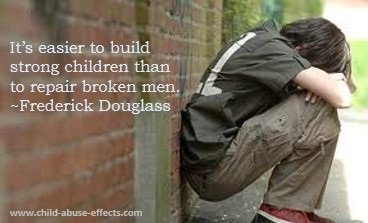Headline 6:
Child Abuse rates rise significantly during deployment

Headline 6: Incidents of child abuse and neglect skyrocket among U.S. military families when the spouse is deployed to war zones such as Iraq and Afghanistan. A Pentagon-funded study determined that women left behind to care for the children alone represent the greatest problem.
|
Researchers compared the number of incidents of child maltreatment during times when enlisted soldiers were at home and while they were deployed on a combat mission.
The figures reflected an overall 42% increase in child abuse and neglect cases during these tours of duty. The data reflects that the greatest effect of deployment was on the civilian wives who were left behind. |
Further analysis of this group revealed that the rate of child neglect—defined as not providing adequate care to the child—increased by almost 4 times amongst these women. The rate of physical child abuse almost doubled, while rates of emotional abuse and sexual abuse remained the same.
Canada does not have any similar data for Canadian military families. What Canada does have are programs to help spouses and their children cope with the difficulties associated with the separation and fears that deployment brings. According to experts, these programs have been beefed up and intensified since the mission in Afghanistan began.
Comments on Headline 6:
It's no great surprise that neglect rates would increase during such difficult and stressful times; these women are in many cases depressed and lacking in any kind of meaningful support. Don't get me wrong, I'm not condoning child abuse or making excuses for any form it takes. What I am saying is that the U.S. military must be proactive rather than reactive in their approach.
If the military expects to send enlisted soldiers to combat zones, then they are obligated to the families of these enlisted men (and women) to provide them with support services. It makes perfect sense for the government to ensure that the people deployed are in a position to focus on the mission at hand rather than worrying that their families are coping poorly back home.
The path for families to remain strong and organized while a spouse is on a tour of duty is through programs that deal with mental health, stress and administration. These programs must give military families access to counseling, support groups for the parent left at home, and respite care so that parents can get short breaks from the children.
The men of these families are sent away from their families to fight for their country. In return, the government owes it to these brave men to fight for the unity, safety and well-being of their families.
Headline 6 originally posted August 6, 2007
References
NOTE: Information pages on this site were based on material from the
 Canadian Red Cross RespectED Training Program. Written permission was obtained to use their copyrighted material on this site.
Canadian Red Cross RespectED Training Program. Written permission was obtained to use their copyrighted material on this site.
From Victim to Victory
a memoir
How I got over the devastating effects of child abuse and moved on with my life
From Victim to Victory
a memoir
How I got over the devastating effects of child abuse and moved on with my life
Most Recent
-
Converging Stolen Lives
Jan 30, 18 01:13 PM
There was a time and space I didn’t think about you, or your abuse. Where when I looked back at my life, I only saw normal things, a normal childhood. -
A letter to one of the 13 Turpin children
Jan 29, 18 11:33 AM
A heartfelt letter by a former classmate that speaks to bullying and regrets. You'll find it on my Facebook group. I hope you'll join and get in on the discussion. -
Dissociated From Abuse
Jan 29, 18 11:00 AM
I was sexually abused by my father from age 6 to 13, which stopped when I started talking about it during the day. The teenage brother of my best friend


